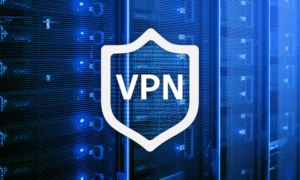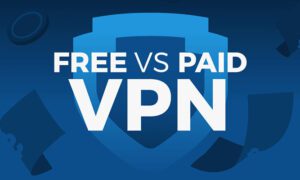Welcome to the digital age, where everything from our personal lives to global commerce relies on technology. As we revel in the convenience and endless possibilities it offers, we must also face a sobering reality – the ever-growing threat of cybercrime. With each passing day, hackers are becoming savvier and more relentless, posing serious risks to our digital lives. In this blog post, we will delve into cyber security essentials – an indispensable guide to fortify your online defenses in an increasingly connected world. Whether you’re a tech enthusiast or just starting out on your digital journey, join us as we navigate through the complexities of safeguarding your valuable data and ensuring peace of mind in this rapidly evolving cyber landscape.
What is Cyber Security?
Cybersecurity is the practice of protecting information systems from cyberattacks. Cyberattacks can take many forms, including:
-Spyware and malware: Private data such as e-mails, bank account numbers, and passwords can be stolen by spyware or malware. Spyware and malware can also monitor user activity and gather sensitive information.
-Data breaches: In a data breach, hackers access personal data belonging to either individuals or organizations. This can include name, address, e-mail addresses, and Social Security numbers. Data breaches can also result in the release of confidential information.
-Criminals exploiting online security vulnerabilities: Criminals could exploit online security vulnerabilities to gain unauthorized access to a system or to steal confidential information.
What are the threats to your digital life?
In an increasingly interconnected and digital world, cyber security is more important than ever. Here are five of the most common threats to digital life and how to safeguard yourself against them:
1. Hackers: Hackers can steal your personal information, passwords, and other confidential information. To protect yourself from hackers, make sure you keep your passwords strong and use a variety of different authentication methods (like two-factor authentication). Additionally, be sure to install anti-virus software on your computer and periodically update it.
2. Identity Theft: Identity theft happens when someone steals your personal information—like your name, address, credit card numbers, etc.—and uses it to commit fraud or misrepresent themselves in some way. To prevent identity theft, use secure passwords and make sure you don’t share too much personal information online. Also be sure to regularly check your bank statements and credit reports for unauthorized charges.
3. Online Privacy: Your online privacy is important because it allows you to communicate without fear of being monitored or tracked by others. Unfortunately, online privacy is not always guaranteed; in fact, many websites track user activity even if users do not have cookies enabled or set their browsers to private mode. To protect your online privacy, be careful what you post on social media platforms (especially photographs), avoid giving out personally identifying information in surveys or contact forms, and never give out your login credentials for online accounts unless you trust the person who wants them.
4 . Data Loss: Data loss can happen when your computer is hacked, your data is accidentally deleted, or a hard drive fails. To protect yourself from data loss, back up your important data regularly and keep it in a secure location (not on your computer). Also, keep your software up-to-date and use firewalls to protect your computer from unauthorized access.
5. Phishing: Phishing is the practice of sending fraudulent emails that look like they come from well-known organizations like banks or online retailers. If you receive an email that you think might be phishing, don’t open it; instead, click on the “Report Unsolicited Email” link at the bottom of the email, and then tell the email sender what happened.
There are many other threats to digital life, but these are the most common. By taking some simple precautions, you can safeguard your digital life and keep yourself safe from harm.
How can you protect yourself from cyber attacks?
Anyone with a computer or smartphone knows that staying connected to the internet is central to our day-to-day lives. With so much information and entertainment available online, it’s no wonder that cybercriminals are targeting us as a lucrative target.
Despite the ever-growing threats of cybercrime, most people don’t take basic precautions to protect themselves from online attacks. Cybersecurity essentials can help you safeguard your digital life in an increasingly connected world:
● Use a VPN: A virtual private network (VPN) helps keep your data and internet activity private by tunneling it through an intermediary server. This protects you from hackers who might be trying to steal your personal information or identities. Some free VPNs offer limited features, but paid VPN services provide more robust security features such as military grade encryption and dedicated customer support. Make sure you choose a reputable VPN service that has been tested and is proven to protect your data against various types of attacks.
● Install malware protection software: Many popular web browsers, such as Google Chrome and Mozilla Firefox, come with built-in malware protection software. However, not all malware is detected by these programs; it’s important to install additional protective software such as Trend Micro Titanium Antivirus for Windows or Malwarebytes Anti-Malware for Mac if you want complete assurance that your computer will remain safe from infection. Keep in mind that installing such protections can occasionally impact performance on your computer, so make sure you have enough disk space and bandwidth to carry the extra weight.
● Use two-factor authentication: When you log in to your online accounts, be sure to use a strong password and also enable two-factor authentication. This means that you’ll need not only a strong password, but also a piece of identification such as a code sent to your mobile phone when you sign in. Two-factor authentication measures your account against potential cyberattack by providing an extra layer of security.
● Install software updates: Always install updates for your software programs and browser plugins, especially if they are recommended by the software publisher or developer. This way, you’ll ensure that your computer is protected from known vulnerabilities and malware infections.
● Back up your data: Make regular backups of your important files and data, both on your computer and cloud-based storage services like Google Drive or iCloud. This will help you restore your files if something happens to your computer, whether it’s a virus or malware attack.
Conclusion
Cyber Security Essentials: Safeguarding Your Digital Life In An Increasingly Connected World
Despite the ever-growing world of digital connectivity, it is still important to take some basic steps to safeguard your digital life. By following a few simple tips and safeguards, you can reduce your risk of falling victim to cybercrime and other online attacks. Make sure you are using strong passwords, backing up your data regularly, and staying updated on the latest security threats. By doing these things, you will create a safer online experience for yourself and those around you.



































